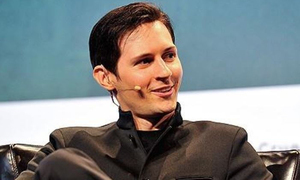부유층·서민들 사이 틈 갈수록 커져 서기 200년에 이르자 로마 공화정은 먼 과거의 기억이 되었다. 세계적인 로마제국 시민 가운데서 스키피오와 키케로 같은 저명한 선조를 기억하는 사람은 드물었다. 수백만 시민이 라틴어를 사용하지 않았고 이탈리아인 출신 황제도 드물었다. 전국적인 선거도 치러지지 않았다.
그런데도 로마는 3세기 이상 세계적인 강대국 지위를 유지했다. 무엇이 로마를 결속했을까. 공통적인 끈끈한 대중문화와 지중해 전역의 표준화된 체제가 번영한 결과로 로마의 결속력이 유지되었다. 이집트, 누미디아, 이베리아, 그리스 주민 수백만명이 로마제 점토 등잔부터 유리제품과 우량한 도로를 이용할 수 있었다.
 |
| 빅터 데이비스 핸슨 美 후버연구소 역사학자 |
이와 비슷한 현상이 미국에서도 벌어지고 있다. 국가 지도자들이 국정 실패에 대한 책임을 지지 않는 것을 걱정하는 미국인은 별로 없는 듯하다. 대다수 청년은 제1수정헌법과 제4수정헌법을 구분하지 못하고 자신의 무지를 걱정하지도 않는다.
로마에서처럼 엘리트층과 일반서민 사이에는 넓은 틈이 벌어져 있다. 절반 가까운 미국인이 정부 지원을 받고 인구의 반은 연방소득세를 내지 않으며, 7명 가운데 1명은 국가의 식비보조금을 받는다. 그러나 맨해튼, 케임브리지, 샌타모니카, 팰로앨토의 고급주택 가격은 급속히 오르고 부유층은 자기네 이상주의가 현실에 가하는 충격으로부터 안전한 로마식 별장 안에 틀어박혀 있다. 정부와 언론은 어느 누구의 비위도 건드리지 않으려고 애쓰는 가운데 급진적인 평등주의 이념을 퍼뜨리는 데 여념이 없다. 테러와의 전쟁이나 과격파 이슬람주의에 대한 반대는 이제 공식적으로는 존재하지 않는다.
분열을 조장하는 인종 관련 주제가 결부된 범죄를 다룬 뉴스기사는 범인들에 관한 정보를 의도적으로 외면하는 경우가 빈번하다. 그러나 그런 고매한 자제력 발휘가 오히려 독자들을 선동하는 듯이 보일 뿐이다. 표면적으로 미국은 다양성을 찬양하지만 내면에서는 인종, 정파, 이념에 따라 사분오열되고 있다.
미국이 터키나 브라질의 폭동, 멕시코에 만연하는 살인에 직면하지 않는 이유는 무엇일까. 미국이 시리아 내전의 피비린내 나는 혼란과 러시아·중국의 가혹한 독재체제, 이집트의 내부 붕괴, 남유럽에 만연한 절망적인 경제실패를 피할 수 있는 까닭은 무엇일까.
대략 미국인의 절반과 대다수 제도는 변함없이 본분을 다한다. 칼테크와 MIT는 학문 연구에 여전히 진지하다. 그런 대학들은 공학과 물리학 교과과정에 인종, 계급, 성에 관한 연구를 끼워 넣지 않는다. 미 국세청의 일부 간부는 부패했지만 대다수 직원은 청렴하다. 워싱턴에서 난무하는 거짓말은 일반 서민들에게 여전히 난해할 뿐이다.
새벽 5시30분에 일어나 고속도로에 나가보면 열심히 일하는 통근자들의 차량이 교통체증을 일으키는 것을 볼 수 있다. 그들이 매일 출근하여 식구들의 생계비와 세금 낼 돈을 벌어 체포를 피하기 때문에 다른 수많은 시민이 그들처럼 노력하지 않고도 먹고살 수 있다.
다양한 인종으로 구성된 로마제국 시민들처럼 미국인들은 공통의 취향과 대량소비에 의해 결속을 유지한다. 빈민들이 사용하는 휴대전화와 승용차는 20년 전 상류계급이 누렸던 것보다 더 좋은 통신과 교통의 혜택을 제공한다.
로마가 대규모 오락행사와 변방의 값싼 식량으로 시민들의 불만을 잠재운 것처럼 미국도 비디오게임과 TV의 리얼리티 쇼와 값싸고 맛있는 패스트푸드로 전 국민을 결속한다. 현재까지는 이런 것들이 폭동이나 반란을 일으키는 것보다 시민들에게 더 낫다. 로마처럼 미국도 훌륭한 정치적 유산과 경제적 역동성 덕분에 관성으로 현상을 유지할 수 있다.
워싱턴타임스·정리=오성환 외신전문위원
빅터 데이비스 핸슨 美 후버연구소 역사학자
Coasting on the fumes of past greatness
By Victor Davis Hanson
By A.D. 200, the Roman republic was a distant memory. Few citizens of the global Roman Empire even knew of their illustrious ancestors such as Scipio or Cicero. Millions no longer spoke Latin. Italian emperors were rare. There were no national elections.
Yet Rome endured as a global power for three more centuries. What held it together?
A stubborn common popular culture and the prosperity of Mediterranean-wide standardization kept things going. The Egyptian, the Numidian, the Iberian and the Greek assumed that everything from Roman clay lamps and glass to good roads and plentiful grain were available to millions throughout the Mediterranean.
As long as the sea was free of pirates, thieves cleared from the roads, and merchants allowed to profit, few cared whether the lawless Caracalla or the unhinged Elagabalus was emperor in distant Rome.
Something likewise both depressing and encouraging is happening to the United States. Few Americans seem to worry that our leaders have lied to or misled Congress and the American people without consequences.
Most young people cannot distinguish the First Amendment from the Fourth Amendment - and do not worry that they cannot. Washington, Jefferson and Lincoln are mere names of grammar schools but otherwise unidentifiable to most.
Separatism is thought to bring dividends. In California, universities conduct separate graduation ceremonies predicated on race - sometimes difficult given the increasingly mixed ancestry of Americans.
As in Rome, there is a vast disconnect between elites and the common people. Almost half of Americans receive some sort of public assistance, and half pay no federal income tax. About one-seventh of Americans are on food stamps.
Yet housing prices in elite enclaves - Manhattan, Cambridge, Santa Monica, Palo Alto - are soaring. The wealthy like to cocoon themselves in Roman-like villas, safe from the real-life ramifications of their own utopian ideology.
The government and the media do their best to spread the ideals of radical egalitarianism while avoiding offense to anyone. There is no official war on terrorism or against radical Islamism. Instead, in "overseas contingency operations," we fight "man-caused disasters" while at home deal with "workplace violence."
In news stories that involve crimes with divisive racial themes, the media frequently paper over information about the perpetrators. But that noble restraint only seems to incite readers. In reckless fashion, they often post the most inflammatory online comments about such liberal censorship. Officially, America celebrates diversity; privately, America is fragmenting into racial, political and ideological camps.
Why is the United States not experiencing something like the rioting in Turkey or Brazil, or the killings of thousands in Mexico? How are we able to avoid the bloody chaos in Syria, the harsh dictatorships of Russia and China, the implosion of Egypt or the economic hopelessness now endemic in southern Europe?
About half of America and many of its institutions operate as they always have. Caltech and MIT are still serious. Neither interjects race, class and gender studies into its engineering or physics curricula. Most in the Internal Revenue Service, unlike some of their bosses, are not corrupt. For the well driller, the power plant operator and the wheat farmer, the lies in Washington are still mostly abstractions.
Get up at 5:30 a.m., and you will see that most of the nation's urban freeways are jammed with hardworking commuters. Every day, they go to work, support their families, pay their taxes and avoid arrest - so that millions of others do not have to do the same. The U.S. military still more closely resembles our heroes from World War II than the culture of the Kardashians.
Like diverse imperial Roman citizens, we are united in some fashion by shared popular tastes and mass consumerism. The cellphones and cars of the poor offer more computing power and better transportation than the aristocracy enjoyed just 20 years ago.
Youths of all races and backgrounds in lockstep fiddle with their smartphones as they walk about. Jeans are an unspoken American uniform - both for the Wall Street grandees and the homeless on the sidewalks. Left, right, liberal, conservative, professor and ditch digger have similar-looking Facebook accounts.
If Rome quieted the people with public spectacles and cheap grain from the provinces, so too Americans of all classes keep glued to favorite video games and reality-TV shows. Fast food is cheap and tasty. All that for now is preferable to rioting and revolt.
Like Rome, America apparently can coast for a long time on the fumes of its wonderful political heritage and economic dynamism - even if both are little understood or appreciated by most who still benefit from them.
By Victor Davis Hanson
By A.D. 200, the Roman republic was a distant memory. Few citizens of the global Roman Empire even knew of their illustrious ancestors such as Scipio or Cicero. Millions no longer spoke Latin. Italian emperors were rare. There were no national elections.
Yet Rome endured as a global power for three more centuries. What held it together?
A stubborn common popular culture and the prosperity of Mediterranean-wide standardization kept things going. The Egyptian, the Numidian, the Iberian and the Greek assumed that everything from Roman clay lamps and glass to good roads and plentiful grain were available to millions throughout the Mediterranean.
As long as the sea was free of pirates, thieves cleared from the roads, and merchants allowed to profit, few cared whether the lawless Caracalla or the unhinged Elagabalus was emperor in distant Rome.
Something likewise both depressing and encouraging is happening to the United States. Few Americans seem to worry that our leaders have lied to or misled Congress and the American people without consequences.
Most young people cannot distinguish the First Amendment from the Fourth Amendment - and do not worry that they cannot. Washington, Jefferson and Lincoln are mere names of grammar schools but otherwise unidentifiable to most.
Separatism is thought to bring dividends. In California, universities conduct separate graduation ceremonies predicated on race - sometimes difficult given the increasingly mixed ancestry of Americans.
As in Rome, there is a vast disconnect between elites and the common people. Almost half of Americans receive some sort of public assistance, and half pay no federal income tax. About one-seventh of Americans are on food stamps.
Yet housing prices in elite enclaves - Manhattan, Cambridge, Santa Monica, Palo Alto - are soaring. The wealthy like to cocoon themselves in Roman-like villas, safe from the real-life ramifications of their own utopian ideology.
The government and the media do their best to spread the ideals of radical egalitarianism while avoiding offense to anyone. There is no official war on terrorism or against radical Islamism. Instead, in "overseas contingency operations," we fight "man-caused disasters" while at home deal with "workplace violence."
In news stories that involve crimes with divisive racial themes, the media frequently paper over information about the perpetrators. But that noble restraint only seems to incite readers. In reckless fashion, they often post the most inflammatory online comments about such liberal censorship. Officially, America celebrates diversity; privately, America is fragmenting into racial, political and ideological camps.
Why is the United States not experiencing something like the rioting in Turkey or Brazil, or the killings of thousands in Mexico? How are we able to avoid the bloody chaos in Syria, the harsh dictatorships of Russia and China, the implosion of Egypt or the economic hopelessness now endemic in southern Europe?
About half of America and many of its institutions operate as they always have. Caltech and MIT are still serious. Neither interjects race, class and gender studies into its engineering or physics curricula. Most in the Internal Revenue Service, unlike some of their bosses, are not corrupt. For the well driller, the power plant operator and the wheat farmer, the lies in Washington are still mostly abstractions.
Get up at 5:30 a.m., and you will see that most of the nation's urban freeways are jammed with hardworking commuters. Every day, they go to work, support their families, pay their taxes and avoid arrest - so that millions of others do not have to do the same. The U.S. military still more closely resembles our heroes from World War II than the culture of the Kardashians.
Like diverse imperial Roman citizens, we are united in some fashion by shared popular tastes and mass consumerism. The cellphones and cars of the poor offer more computing power and better transportation than the aristocracy enjoyed just 20 years ago.
Youths of all races and backgrounds in lockstep fiddle with their smartphones as they walk about. Jeans are an unspoken American uniform - both for the Wall Street grandees and the homeless on the sidewalks. Left, right, liberal, conservative, professor and ditch digger have similar-looking Facebook accounts.
If Rome quieted the people with public spectacles and cheap grain from the provinces, so too Americans of all classes keep glued to favorite video games and reality-TV shows. Fast food is cheap and tasty. All that for now is preferable to rioting and revolt.
Like Rome, America apparently can coast for a long time on the fumes of its wonderful political heritage and economic dynamism - even if both are little understood or appreciated by most who still benefit from them.
Copyright ⓒ 세계일보. 무단 전재 및 재배포 금지
![[설왕설래] ‘빨간 우체통’ 역사 속으로](http://img.segye.com/content/image/2025/12/23/128/20251223518294.jpg
)
![[데스크의 눈] 김부장과 김지영, 젠더 갈등](http://img.segye.com/content/image/2025/12/23/128/20251223518289.jpg
)
![[오늘의 시선] 국민연금 동원해도 환율이 뛰는 이유](http://img.segye.com/content/image/2025/12/23/128/20251223518246.jpg
)
![[안보윤의어느날] 시작하는 마음은 언제나](http://img.segye.com/content/image/2025/12/23/128/20251223518255.jpg
)








